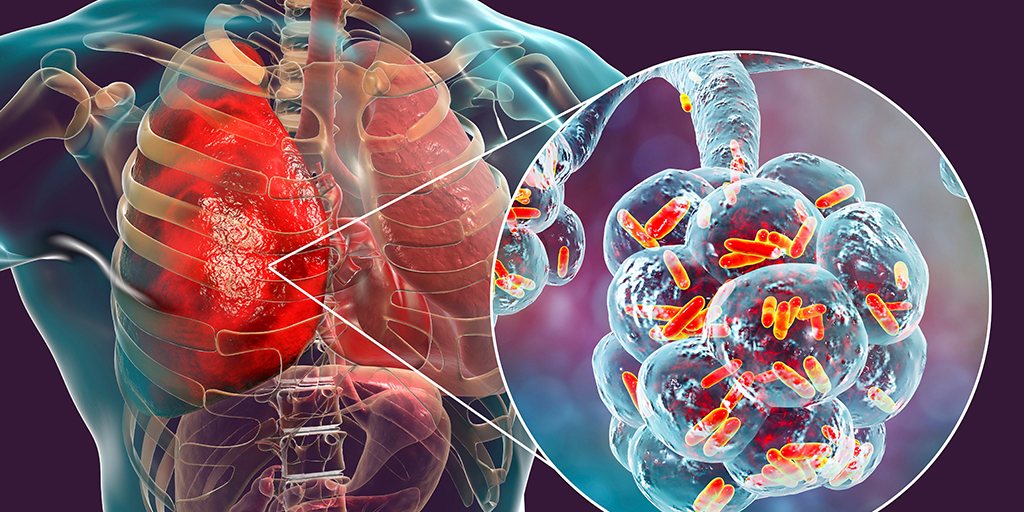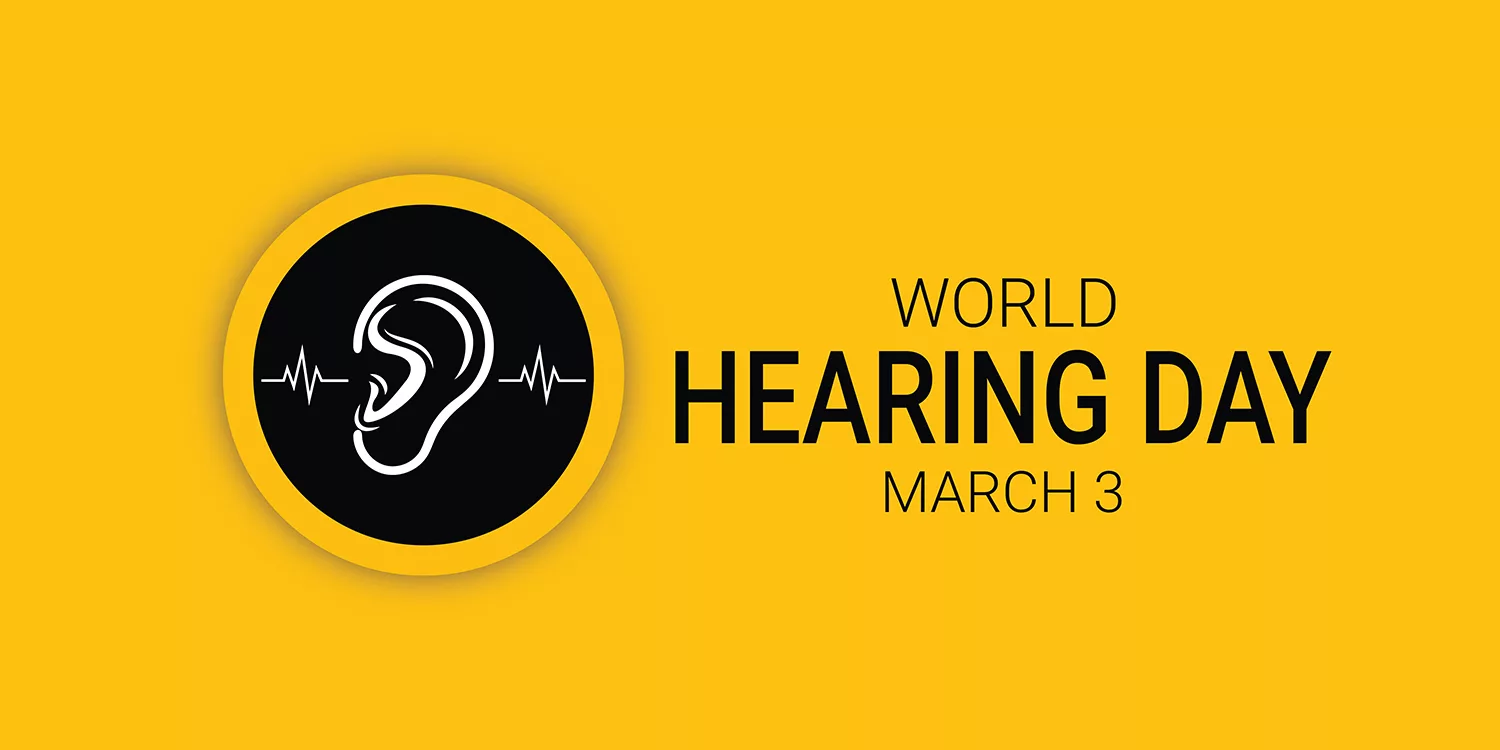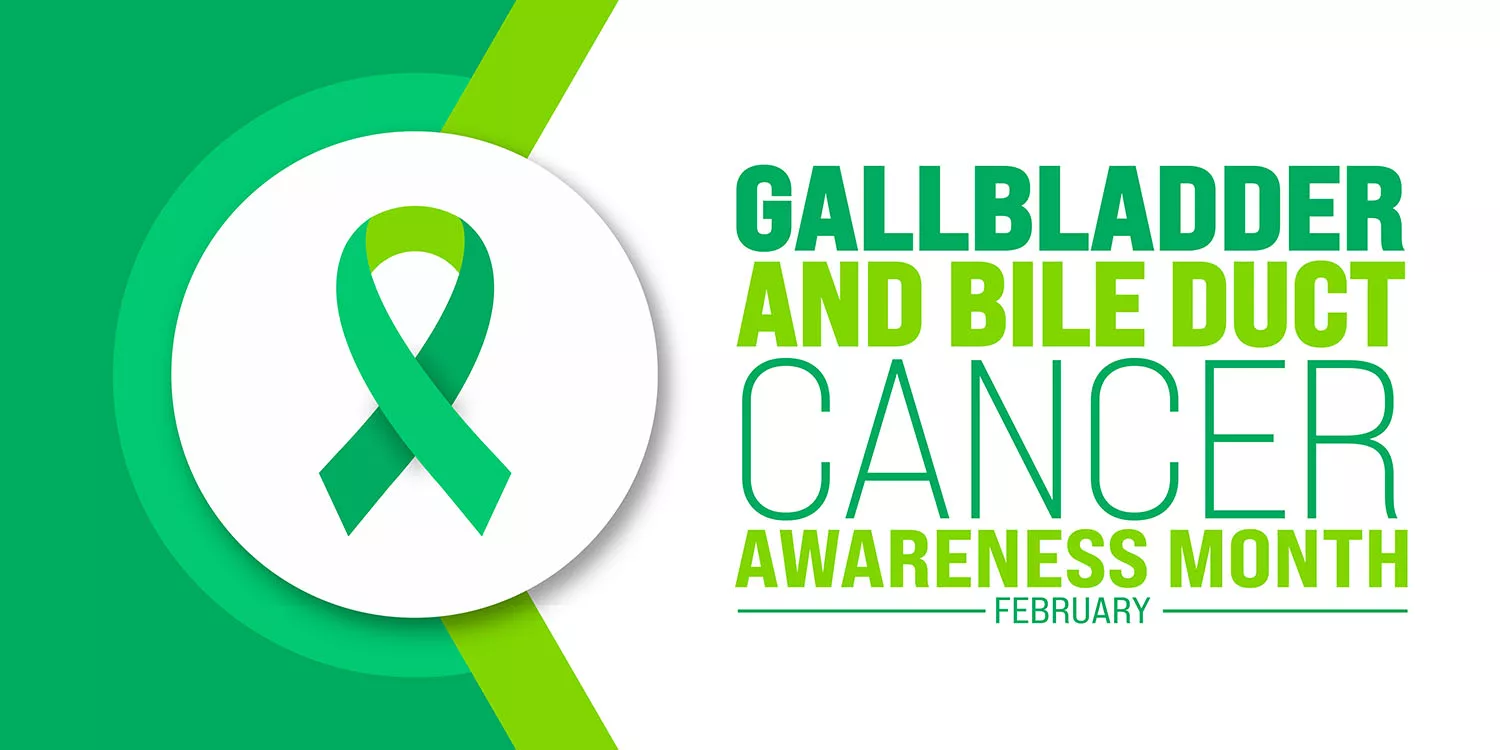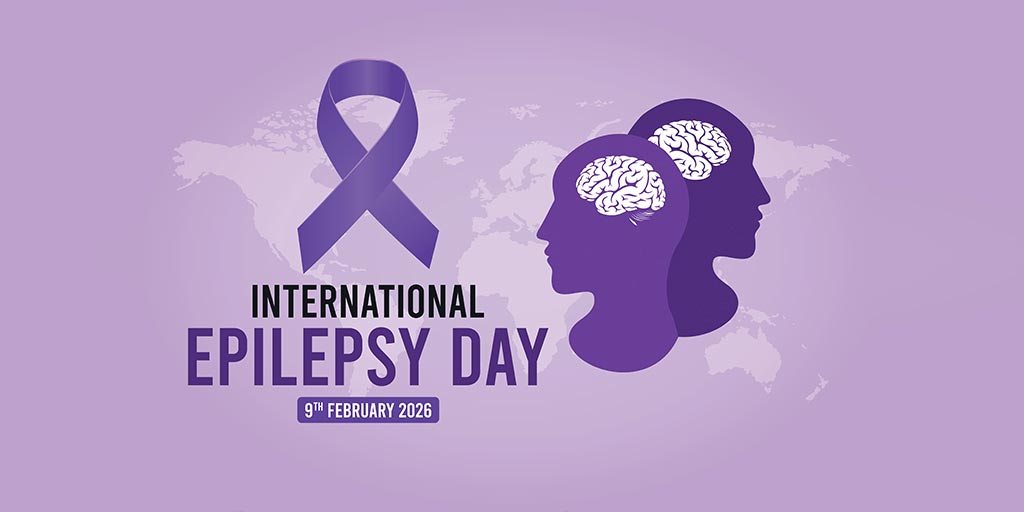Heart failure has become an increasingly common health issue in India, affecting not only elders but also a growing number of young adults. This rise is largely attributed to lifestyle changes and the high prevalence of other contributing factors such as hypertension and diabetes. At Graphic Era Hospital, we understand the complexities of managing heart failure and are committed to providing comprehensive, patient-centric care. Our team of experienced cardiologists utilise state-of-the-art diagnostic tools and advanced treatment options to address every stage of heart failure. With cutting-edge technology and a multidisciplinary approach, Graphic Era Hospital stands out as a trusted name in heart failure treatment, ensuring the best possible outcome for every patient.
What is Heart Failure?
Heart failure, often abbreviated as HF or CHF, is a chronic medical condition in which the heart fails to pump enough blood to meet the body’s requirements. This does not mean the heart stops working; instead, it indicates that the heart’s efficiency is compromised. Congestive cardiac failure can result from various conditions, including weakened heart muscles and structural abnormalities.

Types of Heart Failure
Heart failure can manifest in different forms, depending on the affected side of the heart or the underlying cause:
1. Left-sided Heart Failure
Left-sided heart failure is one of the most common types and is often caused by conditions like hypertension or coronary artery disease. It occurs when the left ventricle of the heart cannot pump blood efficiently, causing fluid buildup in the lungs. This leads to symptoms such as shortness of breath, fatigue, and difficulty lying flat.
2. Right-sided Heart Failure
Right-sided heart failure results in the heart's inability to pump blood effectively to the lungs, leading to fluid retention in the body. This often manifests as swelling in the legs, ankles, and abdomen. It may occur due to left-sided heart failure or conditions like pulmonary hypertension.
3. Congestive Heart Failure (CHF)
Congestive heart failure is a chronic condition where both sides of the heart may be affected, leading to significant fluid buildup throughout the body. Symptoms include swelling, breathlessness, and persistent fatigue. Proper CHF treatment involves a combination of medication, lifestyle changes, and sometimes surgical interventions to improve heart function and reduce fluid retention.
4. Diastolic Congestive Heart Failure
Diastolic congestive heart failure occurs when the heart muscles become stiff and cannot relax properly between beats, reducing blood flow into the heart. This type of heart failure is often associated with ageing, high blood pressure, or diabetes. Managing this condition focuses on controlling heart failure causes and maintaining optimal blood pressure and heart function.
At Graphic Era Hospital, we specialise in treating all types of heart failure using advanced diagnostic techniques and personalised therapy to improve patient outcomes.
Symptoms of Heart Failure
Heart failure symptoms can vary depending on the type and severity of the condition. Early recognition of these symptoms is critical for timely heart failure diagnosis and treatment. Common symptoms of heart failure include:
- Shortness of Breath (Dyspnea): Difficulty breathing during physical activity or even while resting, especially when lying flat.
- Fatigue and Weakness: Persistent tiredness that affects daily activities.
- Swelling (Edema): Fluid buildup in the legs, ankles, feet, or abdomen, caused by the heart’s inability to pump blood efficiently.
- Rapid or Irregular Heartbeat (Palpitations): A sensation of fluttering or pounding in the chest.
- Persistent Cough or Wheezing: Often accompanied by pink or white phlegm, indicating fluid in the lungs.
- Sudden Weight Gain: Caused by fluid retention over a short period.
- Decreased Ability to Exercise: Reduced stamina and physical endurance.
Advanced Symptoms of Heart Failure
- Severe Shortness of Breath: Even at rest, indicating advanced stages of heart failure or congestive heart failure (CHF).
- Chest Pain: May occur if heart failure is due to a heart attack.
- Confusion or Memory Loss: Reduced blood flow to the brain can affect cognitive function.
Causes of Heart Failure
Some of the common causes of heart failure include:
- Coronary Artery Disease: Narrowing of the arteries reduces blood flow to the heart.
- High Blood Pressure: Over time, hypertension forces the heart to work harder, leading to HF disease.
- Heart Attack: A sudden blockage in the heart can damage heart muscles.
- Valvular Heart Disease: Improperly functioning heart valves increase strain on the heart.
- Lifestyle Factors: Poor diet, lack of exercise, and excessive alcohol intake can contribute to heart failure.
Risk Factors for Heart Failure
Certain conditions and lifestyle factors can also increase the likelihood of developing cardiac failure:
- Diabetes, obesity, and smoking.
- A family history of congestive heart failure.
- Chronic conditions such as kidney disease or sleep apnea.
- Advanced age and sedentary lifestyle. Understanding these risk factors can aid in the prevention and management of CHF disease.
Stages of Heart Failure
Heart failure progresses through four stages, as defined by the American College of Cardiology/American Heart Association (ACC/AHA). These stages, labelled A through D, reflect the evolution of heart failure, from risk factors to advanced cardiac failure. Understanding these stages helps tailor heart failure treatment and manage symptoms effectively.
Stage A: At Risk for Heart Failure
Individuals at this stage are at the risk for developing heart failure due to underlying conditions but with no symptoms or structural heart abnormalities.
Common Risk Factors:
- High blood pressure (hypertension).
- Diabetes.
- Coronary artery disease.
- Family history of heart failure.
At this stage, lifestyle changes and managing heart failure causes such as high blood pressure or diabetes can prevent progression to Stage B.
Stage B: Pre-Heart Failure
At this stage, structural damage to the heart (e.g., enlarged or weakened heart muscles) is present, but there are no heart failure symptoms yet.
Common Causes:
- Past heart attack.
- Valve disease.
- Genetic predisposition to cardiac failure.
At this stage, medications such as ACE inhibitors or beta-blockers are often used to slow disease progression and reduce the risk of congestive cardiac failure.
Stage C: Symptomatic Heart Failure
Heart failure symptoms become evident during physical activity or at rest, and the patient has a diagnosed heart condition.
Common Symptoms:
- Shortness of breath.
- Fatigue and weakness.
- Swelling in the legs, abdomen, or lungs (diastolic congestive heart failure or congestive heart failure).
At this stage, active heart failure therapy, including a combination of medications, lifestyle modifications, and, in some cases, surgical interventions are advised to manage symptoms and improve quality of life.
Stage D: Advanced Heart Failure
Severe symptoms of heart failure persist despite maximum medical therapy. At this stage, the heart's ability to pump blood is critically impaired.
Common Symptoms:
- Difficulty breathing even at rest.
- Frequent hospitalizations due to worsening CHF.
At this stage, specialised treatments such as ventricular assist devices (VADs), heart transplants, or palliative care, are advised to manage symptoms and improve longevity.
At Graphic Era Hospital, our cardiologists provide personalised heart failure treatment for every stage. Whether it’s addressing risk factors in Stage A or managing complex cases in Stage D, our multidisciplinary team ensures comprehensive care to help patients achieve the best possible outcomes.
Comprehensive Heart Failure Treatment and Care in Dehradun
At Graphic Era Hospital, we offer a comprehensive and personalised approach to heart failure treatment, addressing the unique needs of each patient. Here's how Graphic Era Hospital ensures optimal cardiac care:
Advanced Diagnostics for Accurate Evaluation
Early and accurate diagnosis is the cornerstone of effective heart failure management. Our hospital is equipped with advanced diagnostic tools, including:
- Echocardiography: Provides real-time images to assess heart structure and function.
- Stress Testing: Evaluates how well your heart performs under physical exertion.
- Cardiac MRI and CT Angiography: Offer detailed imaging to identify structural abnormalities and blockages.
These tools ensure timely diagnosis and help us develop personalised treatment plans tailored to each patient's condition.
Minimally Invasive Cardiac Procedures
Our dedicated Cath Labs are staffed with expert interventional cardiologists to perform minimally invasive procedures, including:
- Coronary Angiography and Angioplasty: To restore blood flow to the heart.
- Cardiac Catheterization: For precise evaluation of heart function.
These interventions are critical for managing heart failure caused by coronary artery disease or structural heart issues.
Advanced Therapies for Heart Rhythm Management
For patients with heart rhythm disturbances, our Electrophysiology (EP) Lab offers:
- Electrophysiological Studies and Radiofrequency Ablation: Effective treatment for arrhythmias.
- Implantable Cardioverter-Defibrillators (ICD) and Pacemaker Implantation: Devices to regulate heart rhythm and prevent sudden cardiac death.
Innovative Device-Based Treatments
We specialise in advanced device therapies for moderate to severe heart failure, including:
- Cardiac Resynchronization Therapy (CRT): Improves heart efficiency and reduces mortality.
- Left Ventricular Assist Devices (LVAD): Supports heart function in advanced cases.
Surgical Solutions for Complex Cases
When necessary, surgical interventions are performed to address severe heart failure or its underlying causes:
- Coronary Artery Bypass Grafting (CABG): Restores blood flow to the heart.
- Heart Valve Repair or Replacement: Corrects defective valves to improve heart function.
- Heart Transplant: An option for patients with end-stage heart failure unresponsive to other treatments.
Multidisciplinary Care
Our heart failure treatment leverages a multidisciplinary team that includes:
- Cardiologists, cardiothoracic surgeons, and cardiac nurses.
- Rehabilitation specialists and nutritionists. This collaborative approach ensures holistic care tailored to each patient's needs, improving outcomes for those with heart failure.
Rehabilitation and Lifestyle Support
Recovery and prevention are vital for patients with heart failure. Our comprehensive cardiac rehabilitation programs include:
- Exercise Training: Safe and supervised exercises to strengthen the heart.
- Lifestyle Modification: Guidance on diet, stress management, and smoking cessation.
- Risk Factor Management: Ongoing monitoring of hypertension, diabetes, and cholesterol levels. These programs aim to enhance the quality of life and reduce the risk of future cardiac events.
Patient-Centred Care
At Graphic Era Hospital, we prioritise compassionate, patient-centred care by:
- Developing personalised treatment plans based on individual needs and preferences.
- Providing education, support, and guidance to patients and their families throughout the treatment journey.
- Ensuring every patient receives comprehensive and empathetic care at every stage of heart failure therapy.
Why choose Graphic Era Hospital for Heart Failure Treatment?
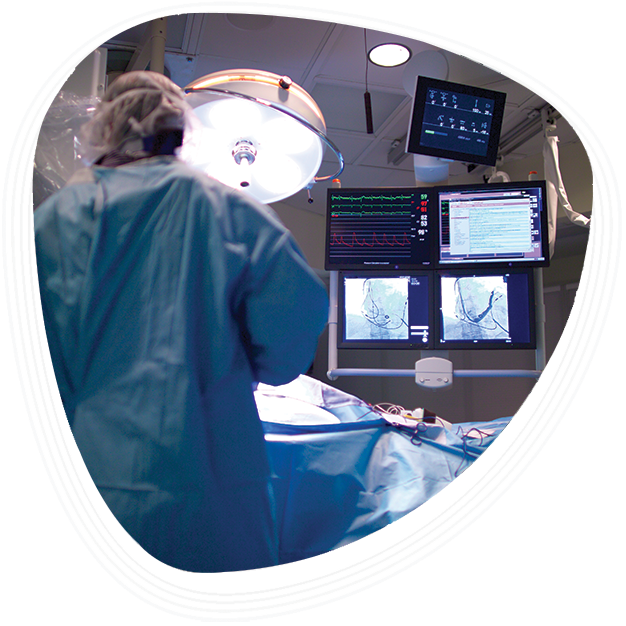
Complications and Risk Management
Heart failure treatment aims to improve heart function, manage symptoms, and enhance the quality of life of each patient. However, like any medical intervention, it can have potential complications or side effects. At Graphic Era Hospital, we adopt a patient-centric approach to minimise treatment risks and deliver the best possible outcomes for every patient. Our strategies include:
- Regular Monitoring: Frequent follow-ups to track progress and detect side effects early.
- Tailored Treatment Plans: Customised care based on each patient’s health and tolerance levels.
- Multidisciplinary Care: Collaboration between cardiologists, surgeons, dieticians, and mental health professionals for holistic management.
- Patient Education: Empowering patients with knowledge about potential complications and effective ways to manage them.
By combining advanced heart failure therapy with vigilant care, Graphic Era Hospital ensures patients experience the full benefits of treatment while minimising risks.
How to Prevent Heart Failure?
Preventing heart failure, or cardiac failure, involves adopting a proactive approach to maintaining heart health. By addressing risk factors and making lifestyle modifications, individuals can significantly reduce their chances of developing heart failure. At Graphic Era Hospital, we emphasise prevention through education, screening, and early interventions. Here are some of the effective ways to prevent heart failure:
Manage Underlying Health Conditions
- Control Hypertension: High blood pressure is a leading cause of heart failure. Regular monitoring and medication can keep it in check.
- Manage Diabetes: Proper glucose control through diet, exercise, and medication reduces heart failure risk.
- Treat Coronary Artery Disease: Timely treatment of blockages can prevent progression to heart failure.
- Address Obesity: Maintaining a healthy weight reduces strain on the heart.
Adopt a Heart-Healthy Lifestyle
- Healthy Diet: Follow a diet rich in fruits, vegetables, whole grains, and lean proteins while limiting salt and unhealthy fats.
- Regular Exercise: Engage in at least 150 minutes of moderate aerobic activity per week to strengthen the heart and improve circulation.
- Avoid Smoking and Limit Alcohol: Smoking damages blood vessels, while excessive alcohol intake weakens the heart muscle.
Get Regular Health Check-ups
- Periodic health check-ups help identify risk factors early, allowing for timely intervention.
- At Graphic Era Hospital, we offer comprehensive cardiac screening programs to monitor heart health and prevent complications.
Manage Stress
- Chronic stress increases the risk of heart disease. Practices such as yoga, meditation, and mindfulness can improve overall cardiovascular health.
Take Medication on Time
- If you have conditions like hypertension, diabetes, or high cholesterol, take prescribed medications regularly to prevent heart damage.
Regular screening for individuals with a family history of heart failure.
- Individuals with a family history of heart failure or other heart diseases should be extra vigilant and undergo regular screenings.
By taking preventive measures and seeking early guidance, you can significantly reduce the risk of heart failure and lead a healthy, fulfilling life.
Blog
Frequently Asked Questions
What is an early symptom of heart failure?
Shortness of breath during physical activity is one of the earliest heart failure symptoms. Fatigue and swelling in the legs or feet may also appear.
How fast is congestive heart failure?
The progression of congestive heart failure (CHF) varies depending on the heart failure causes, lifestyle, and treatment. Early intervention slows its progression significantly.
How can I prevent congestive heart failure?
Prevent CHF by managing high blood pressure, diabetes, and cholesterol, adopting a heart-healthy diet, exercising regularly, and avoiding smoking and excessive alcohol.
Can congestive heart failure be cured?
While CHF cannot be completely cured, heart failure treatment, including medications and lifestyle changes, can manage symptoms and improve quality of life.
What is the first-line treatment for congestive heart failure?
First-line CHF treatment typically includes ACE inhibitors, beta-blockers, and diuretics to manage symptoms and improve heart function.
What are the 4 stages of congestive heart failure?
The stages of heart failure are:
- Stage A: Risk factors but no symptoms.
- Stage B: Structural changes in the heart without symptoms.
- Stage C: Symptoms like shortness of breath and fatigue.
- Stage D: Advanced CHF requiring specialised treatment.
At what age is heart failure common?
Heart failure is more common in people over 60, but lifestyle factors and genetics can cause it at younger ages.
What are the symptoms of end-stage congestive heart failure (CHF)?
Severe shortness of breath, fatigue even at rest, swelling in the abdomen or legs, and frequent hospitalizations are signs of end-stage CHF.
Can ECG detect heart failure?
An ECG can help detect heart failure signs like irregular heart rhythms or evidence of past heart damage but may need further tests for a conclusive heart failure diagnosis.
Is congestive heart failure lifelong?
CHF is a chronic condition, but heart failure therapy can help manage symptoms and slow disease progression.
Can you live a normal life with congestive heart failure?
Yes, with proper CHF treatment, including medications, lifestyle changes, and regular monitoring, many patients can lead fulfilling lives.
Can stress cause heart failure?
Chronic stress can contribute to HF disease by increasing blood pressure and triggering unhealthy lifestyle habits, indirectly leading to heart failure.
What is the best treatment for congestive heart failure at Graphic Era Hospital?
Graphic Era Hospital offers advanced CHF treatment, including medications, cardiac resynchronization therapy, ventricular assist devices, and heart transplants, tailored to each stage of heart failure.
What is the new treatment for heart failure at Graphic Era Hospital?
Graphic Era Hospital offers innovative heart failure therapy, including the latest in SGLT2 inhibitors, ventricular assist devices (VAD), and personalised cardiac rehabilitation programs for advanced CHF management.
Take the First Step Towards Improved Heart Health
At Graphic Era Hospital, we are committed to providing world-class care for heart failure treatment. Our expertise, advanced technology, and compassionate approach ensure the best outcomes for patients with HF disease. Whether you require preventive care, diagnostic testing, interventional procedures, or long-term management of cardiovascular conditions, we have got you covered. To book a consultation with one of our cardiologists, simply call 18008897351 or fill out our contact form.

